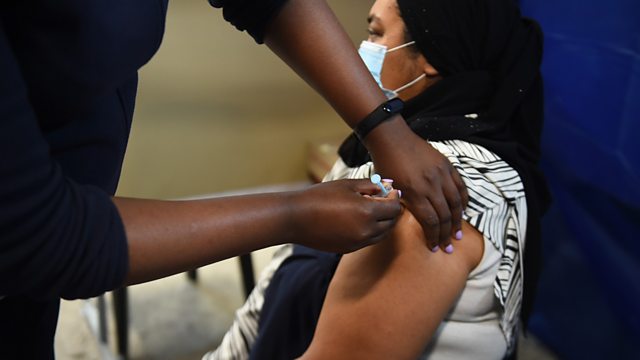Omicron, racism and trust
How the global political response to the new variant is hampering science in Africa
South Africa announced their discovery of the Omicron variant to the world as quickly as they could. The response from many nations was panic and the closure of transport links with southern Africa. Tulio de Oliveira who made the initial announcement and leads South Africa’s Centre for Epidemic Response and Innovation tells us this is now having a negative effect on the country, with cases rising but vital supplies needed to tackle the virus not arriving thanks to the blockade.
Omicron contains many more mutations than previous variants. However scientists have produced models in the past which can help us understand what these mutations do. Rockefeller University virologist Theodora Hatziioannou produced one very similar to Omicron and she tells us why the similarities are cause for concern.
Science sleuth Elisabeth Bik and Mohammad Razai, professor of Primary Care in St George’s University in London have just been awarded the John Maddox Prize for their campaigning investigations in science. Elisabeth is particularly concerned with mistakes, deliberate or accidental in scientific publications, and Mohammad structural racism in approaches to healthcare.
Laura Figueroa from University of Massachusetts in Amhert in the US, has been investigating bees’ digestive systems. Though these are not conventional honey bees, they are Costa Rican vulture bees. They feed on rotting meat, but still produce honey.
And, What makes things sticky? Listener Mitch from the USA began wondering while he was taking down some very sticky wallpaper. Our world would quite literally fall apart without adhesives. They are almost everywhere – in our buildings, in our cars and in our smartphones. But how do they hold things together?
To find out, presenter Marnie Chesterton visits a luthier, Anette Fajardo, who uses animal glues every day in her job making violins. These glues have been used since the ancient Egyptians –but adhesives are much older than that. Marnie speaks to archaeologist Dr Geeske Langejans from Delft University of Technology about prehistoric glues made from birch bark, dated to 200,000 years ago. She goes to see a chemist, Prof Steven Abbott, who helps her understand why anything actually sticks to anything else. And she speaks to physicist Dr Ivan Vera-Marun at the University of Manchester, about the nanotechnologists using adhesion at tiny scales to make materials of the future.
(Photo: Vaccination centre in South Africa administering Covid-19 vaccine after news of Omicron variant. Credit: Xabiso Mkhabela/Anadolu Agency/Getty Images)
Last on
More episodes
Previous
Broadcasts
- Sun 5 Dec 2021 00:06GMT���˿��� World Service South Asia & East Asia only
- Sun 5 Dec 2021 01:06GMT���˿��� World Service except East Asia & South Asia
Podcast
-
![]()
Unexpected Elements
The news you know, the science you don't


